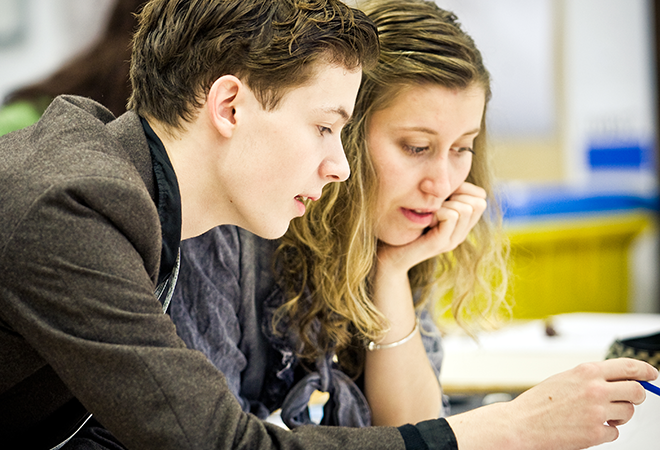
Transitional Experiences of First Year Young Males at University
Status
Completed: 20 March 2011
Project Details
A project completed in 2011, undertaken by Massey University, to find possible explanations for gender differences occurring in enrolment and retention in New Zealand tertiary institutions.
Aims:
The main aims of the project were to:
- examine the issue of transition from school or workplace to university and the effect on student learning
- examine the differences between male and female experiences and perceptions of first year university study
- explore how transition can be made smoothly so that the academic learning experiences at university can be optimised by students from day one.
Methodology:
The project took a mixed methods approach involving:
- an online survey of both male and female students to establish their learning experience, motivational factors, participation and supportive learning relationships established during the first year of university study
- follow-up interviews with first-year students
- an analysis of present participation and retention patterns nationally and locally.
Team

Michael Irwin
Project Leader
Massey UniversityStatus
Funding
$9,385.00 (excl GST)
Key Findings
The key findings from the project included:
- The study examined differences between male and female experiences and perceptions of first year university study and found that young males have a greater struggle with transition to university than their female counterparts. Transition is a critical time for students as they attempt to establish social and academic networks in a new environment. It is also an important time for a student to be establishing a sense of identity and presence on campus.
- Males had varying different perceptions and experiences of university compared to women. These differences, if addressed, could contribute to increased male retention, engagement and academic success. One of the major difficulties that students encountered in transitioning to university was a lack of understanding of programme and university expectations.
- Results revealed that many students feel alone and lost when first transitioning to university. Friendship and social activity emerged as significant factors for a successful transition.
- A significant number of young males perceived a greater difficulty in establishing learning relationships and social contacts than their female counterparts. The protection of masculine self-image was given by male students as a reason for this perception.
- Many students indicated a difficulty finding a balance between study and life activities away from university. Many were reluctant to give up social, sport, work activities to commit the required time to university learning.
- The lecturing style adopted by academic staff and student-established support networks are two significant factors that influence student academic engagement.
- A number of studies have established that a predominant reason for withdrawal and non-completion of qualification is a lack of preparedness for higher education (Ozga & Sukhnandan’s, 1998; Wilcox, Winn & Fyvie-Gauld, 2005). New Zealand has a higher proportion of degree students that change qualifications (41%) or providers (20%) during their course of study than most other OECD countries (Scott, 2009). This may be an indication that students are attending university without fully considered the expectations or options of higher education.
- Potential solutions suggested by both genders to improve transitional experiences requires modification of present university cultures. The male students wanted more activity and relevance built into their learning environment.
Key Recommendations
The key recommendations from the project were:
Successful transition to university for male students | Tertiary providers need to recognise that males are more at risk of failing or underachieving in the present learning environment. Gender equality has been lost when enrolment, retention and completion statistics are compared. A successful transition to university requires a variety of activities that will engage students in activity and dialogue. This needs to be done in both the academic and social communities of the tertiary institution.
Orientation to university | The traditional orientation events do not go far enough in engaging students, relying largely on music and beer. Standing around drinking and listening to music is a difficult environment in which to establish dialogue. The young male needs physical activity, competition and challenge so to be able to establish friendships and a presence at university. Many males’ concept of self is built on doing rather than on sitting. Orientation to university needs a radical overall, to become more engaging, creative, physical and challenging.
Learning environment | The learning environment requires redesigning to take into account the male need for activity. Young males need space in which to kick a ball around and have a bit of boisterous interplay. Such activity releases stress, built-up energy and improves focus for following learning. Spaces, free of trees and gardens, around academic buildings need to be incorporated into landscape designs. The benefits from physical activity can enhance academic endeavours. The males in this study suggested that learning is enhanced when activity is incorporated into the classroom. Purposeful, challenging activity of a practical nature, that involves curiosity and group endeavours must be built into academic programmes. Young males enjoy the challenges of such learning scenarios.
Teaching methods and strategies | The methods used to present academic knowledge need an overhaul. The findings in this study would suggest that many academic classes use ineffectual teaching strategies. Traditional lecturing using aural-visual formats in one or two-hour blocks are not conducive to effective learning. The use of collaborative activity, group discussion and problem solving built upon relevant activity is a far superior learning strategy. Teaching approaches using such strategies will assist male students to acquire greater knowledge and skills. An important benefit of such teaching practice is it gives the student opportunity to meet fellow students and establish learning support networks. Such networks are powerful learning tools and reduce the isolation of learning in a new environment.
Learning support services for male students | The plight of many young men necessitates that learning support services initiate programmes specifically for them. Many young men need assistance with organisation of their learning and the management of study. Masculine beliefs and behaviours often have males asking for help too late or not at all. Male only study preparation workshops should be organised to address this along with male mentors. Young men often turn to other young males when they need help or advice. Using second or third year males as mentors could be a way of assisting the transition to higher education.
Addressing student engagement and retention | Tertiary institutions must be innovative and active in addressing student engagement and retention for male students. Campuses need to become more student orientated, more student friendly, and especially, more male friendly.
A research report prepared by Michael Irwin.
(PDF, 327 KB, 23-pages).
- 20 March 2011